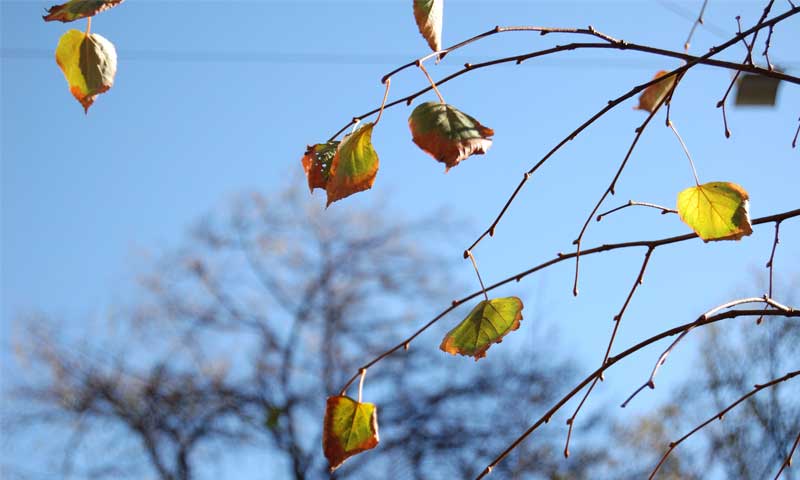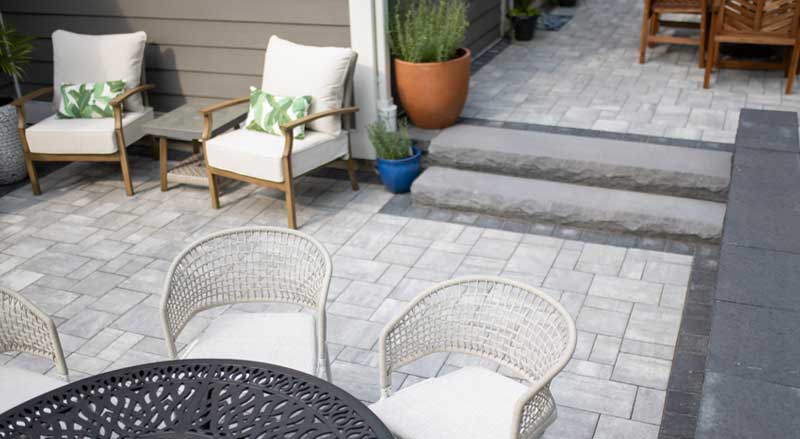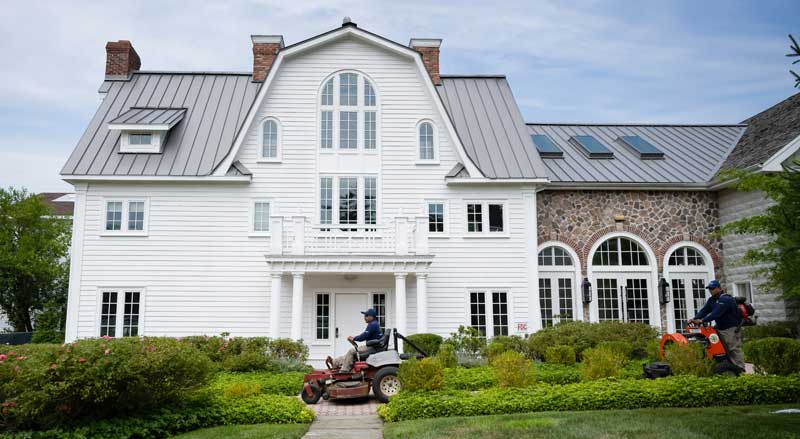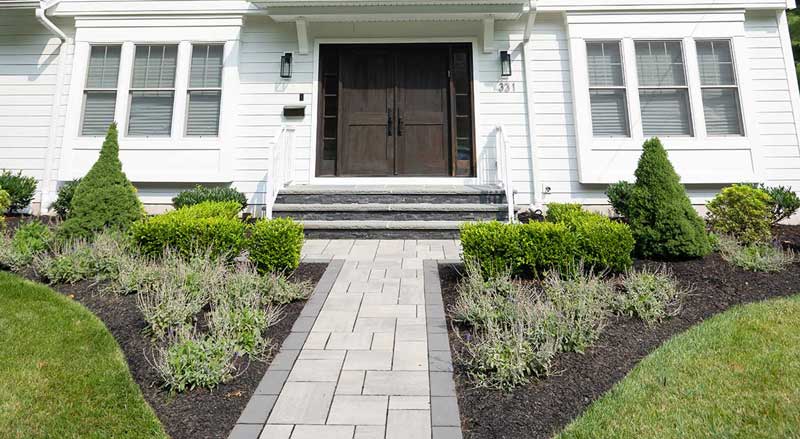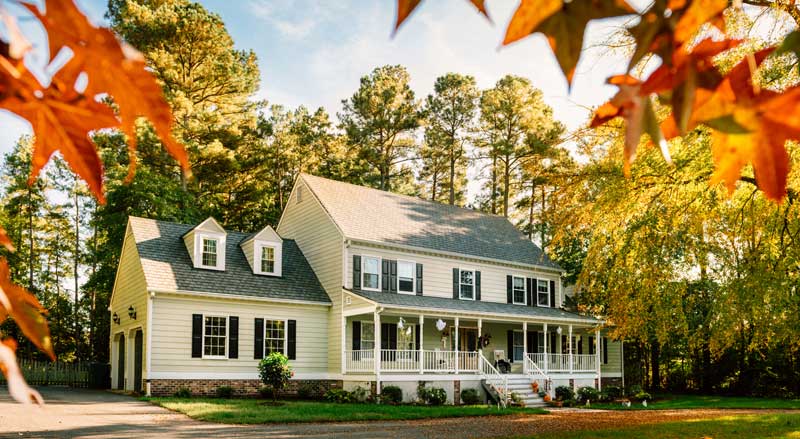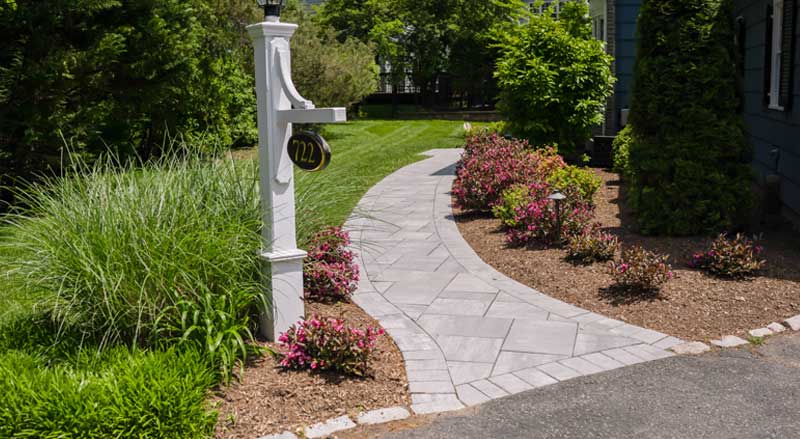Brrr! The Weather’s Been Cold Here in Northern New Jersey
As reported on NJ.com, we’ve already experienced our first freeze.
This means our local growing season has ended for the year. It’s too late to plant trees, shrubs, perennials, and bulbs.
But there’s still plenty of landscaping to do in November!
Your Garden Still Needs Your Attention
Make sure that everything in your garden—perennials, trees, and the lawn—is prepared for the weather to come.
When your gardens are safe and well-nourished during the winter, they will have a healthier and more bountiful spring.
Pay Attention to Perennials
Just because your perennials have stopped blooming for the year, doesn’t mean they don’t need some TLC.
Now is the time to do a final clean-up on perennial gardens.
Cut back on growth and clean out any debris from the flowerbeds. This keeps harmful insects and plant diseases from disturbing your hardy chrysanthemums.
Keep the flower beds well maintained and your spring flowers will be healthy and more plentiful.
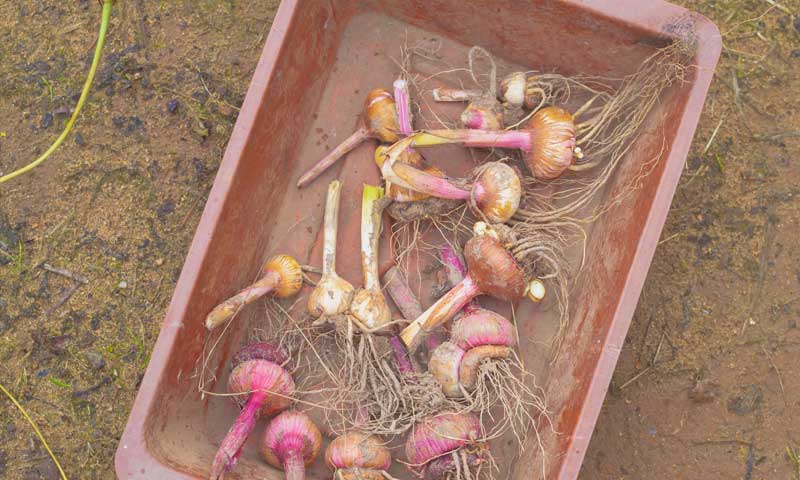
Bring Tender Bulbs Indoors
If you have tender bulbs for flowers, such as gladiolus, dig them up and bring them indoors for the winter.
Here’s how to keep these bulbs healthy:
- Once leaves have turned brown from frost, cut away the dead leaves
- Dig up the bulbs
- Don’t wash them; keep them dry
- Put small holes in a cardboard box and place the bulbs inside, not touching each other
- Cover the bulbs with sawdust
- Store the box in a cool, dry location until you are ready to replant
Mulch Flower Beds
Now is a good time to mulch around flower beds.
There’s lots to learn about mulching, and the benefits of organic and inorganic mulches. Different mulches not only update the look of your garden, but they provide different nutritional benefits for your plants, as well.
Mulch will protect and help regulate the underground activity that’s going on in your garden. It helps the soil maintain a more constant temperature. And it helps the soil retain much needed water—especially if there was a dry summer.
It will keep bulbs safe. And bulbs still have lots to do! Bluebells do more than sleep during the winter. While bulbs are dormant, they are still quietly expanding their root system. They appreciate the extra layer of protection that mulch provides.
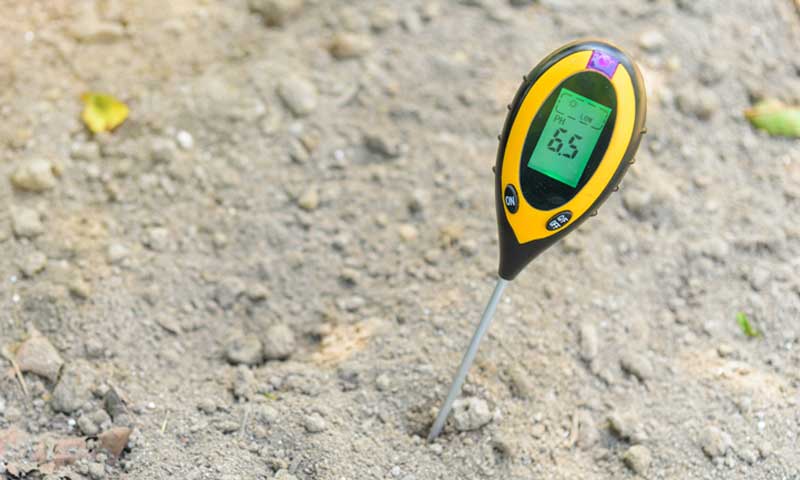
Get Acquainted with Your Soil’s pH
The pH level of your soil is a measurement of its acidity or alkalinity. Knowing your soil’s pH is important. It affects a plant’s ability to absorb iron or other needed nutrients.
New Jersey soil is usually acidic. However, sometimes gardeners enhance a soil’s acidity for optimal growth of common flowering bushes. Bushes that like acidic soil include azaleas and rhododendrons.
There are kits to test your soil’s pH, and products to alter the pH of your soil at your local gardening center. Now is a good time to use them. Your azaleas will look especially happy this spring!
Time to Fertilize
It’s recommended that you fertilize your lawn in November. This will keep your lawn fortified for the winter. You can use a quick release formula; it will give your lawn’s roots a nutritional boost before they become entirely dormant.
Trees and shrubs planted for a year can be fertilized when they’re dormant. This will help them survive the winter, as well. And fertilization will give them a healthy head-start in the spring.
Take Care of Your Trees
Some trees need extra protection during the winter months.
Once temperatures hit the low thirties, young trees are at risk of damage from the cold. Cover them.
Wrapping a tree trunk will help protect some delicate barks. This helps trees that are susceptible to bark splitting or peeling in the winter.
Move potted trees to a protected location, such as a covered porch or sheltered area of your backyard.
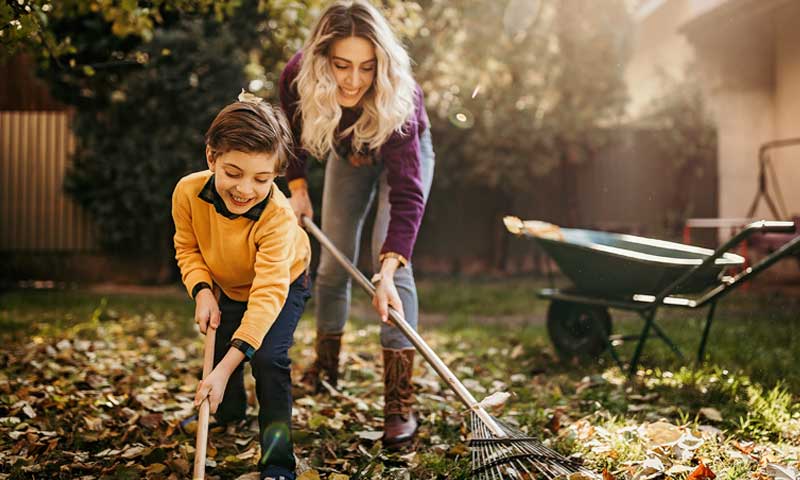
Finish the Fall Clean-Up
November is the time to complete your fall clean-up. Trees have lost their leaves, but the winter snow hasn’t yet arrived.
Dead leaves are a common breeding ground for unwanted bugs and plant diseases. You don’t want them staying all winter on your grass or flower beds. Rake them away before the first snow falls.
And while you’re at it, be sure to remove all dead leaves from your driveway and paths around the house and grounds. Leaves left on the ground will get wet and freeze. They become an unattractive and slippery hazard that you will have to navigate around all winter.
Dead leaves gathered under cars are dangerous. They can start fires.
Finally, remove old pumpkins from the garden. They looked great during Halloween, but over time they can harbor diseases that can spread to other plants.
Old mulch can be moldy. Remove and replace it.
Enjoy the beautiful northern New Jersey fall season. And know that what you do now will contribute to an even more abundant spring growing season.

